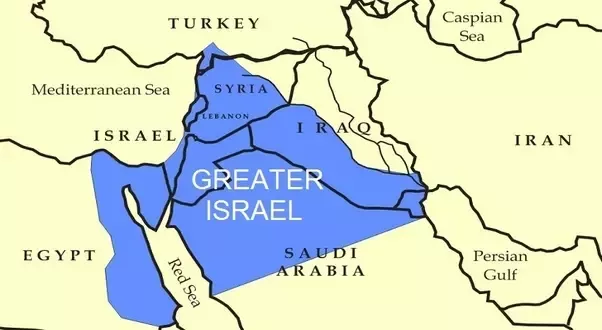بسم
الله الرحمن الرحيم
وَقُلْنَا
مِن بَعْدِهِ لِبَنِي إِسْرَائِيلَ
اسْكُنُوا الْأَرْضَ فَإِذَا جَاءَ
وَعْدُ الْآخِرَةِ جِئْنَا بِكُمْ
لَفِيفًا
And
We said after him to the children of Israel, dwell in the Land, so
when comes the promise of the hereafter, We will bring you out as a
mixed group
(Surah
17:104)
The
word لفيف
means
‘diversified crowd, a mixed group’ (Arabic-English Dictionary of
Quranic Usage, p.845), and perfectly describes the Jews who migrated
en masse to the Holy Land after the Holocaust, where they
subsequently established the State of Israel in 1948. Therefore,
while this Ayah is traditionally understood as referring to the
gathering of mankind at the Resurrection, it is likely a prophecy of
the gathering of the ethnically diverse Jews of the Diaspora back to
the Holy Land, something that has evidently been fulfilled. That the
Ayah speaks of Allah ﷻ
ordering
the Israelites to securely dwell in the Land lends support to this
view, for the Resurrection is not specific to the Israelites but all
mankind. Ibn Jarir at-Tabari related in his Tafsir of
this Ayah:
حدثنا
مـحمد بن بشار، قال:
ثنا
عبد الرحمن، قال:
ثنا
سفـيان، عن منصور، عن ابن أبـي رَزِين {
جِئْنا
بِكُمْ لَفِـيفـاً }
قال:
من
كلّ قوم
Ibn
Abi Razin said, concerning the words ‘We will bring you out as a
lafif (mixed group)’:
“from every qawm
(people)”.
And
after the Holocaust at the conclusion of the Second World War, the
Jews from various nations of Europe, the Middle East, North Africa
and the former Soviet Union came together and settled in the Holy
Land, where they had established the modern-day State of Israel. This
is not necessarily a divine endorsement of Zionism, but a predictive
statement that has apparently come to fruition. From an Islamic
perspective, there is no doubt Allah ﷻ
originally
ordered the Israelites to dwell in the Holy Land:
يَا
قَوْمِ ادْخُلُوا الْأَرْضَ الْمُقَدَّسَةَ
الَّتِي كَتَبَ اللَّهُ لَكُمْ وَلَا
تَرْتَدُّوا عَلَىٰ أَدْبَارِكُمْ فَتَنقَلِبُوا خَاسِرِينَ
(Moses
said): “O people, enter the Holy Land which Allah has written for
you, and do not turn back and thus become losers”
(Surah
5:21)
Whether
this decree is still in order or has been abrogated is subject to
discussion.
Although
the word الآخرة
meaning
‘the Hereafter’ has been used in the Ayah (17:104), and is
generally understood to mean the Afterlife, that is not necessarily
its literal, linguistic meaning. Al-Qurtubi relates in his Tafsir of
the Ayah (17:104):
وقال
الكلبي:
«فإذا
جاء وعد الآخرة»
يعني
مجيء عيسى عليه السلام من السماء
“al-Kalbi
said: ‘so when comes the promise of the hereafter’ means when
Jesus peace be upon him comes from Heaven”. This indicates that
الآخرة
doesn’t
necessarily refer to the Afterlife, or that which shall occur after
the Resurrection from the graves, as al-Baidawi has likewise
indicated in his Tafsir of the Ayah four possibile meanings:
{
فَإِذَا
جَاء وَعْدُ ٱلأَخِرَةِ }
الكرة
أو الحياة أو الساعة أو الدار الآخرة يعني
قيام القيامة








No comments:
Post a Comment